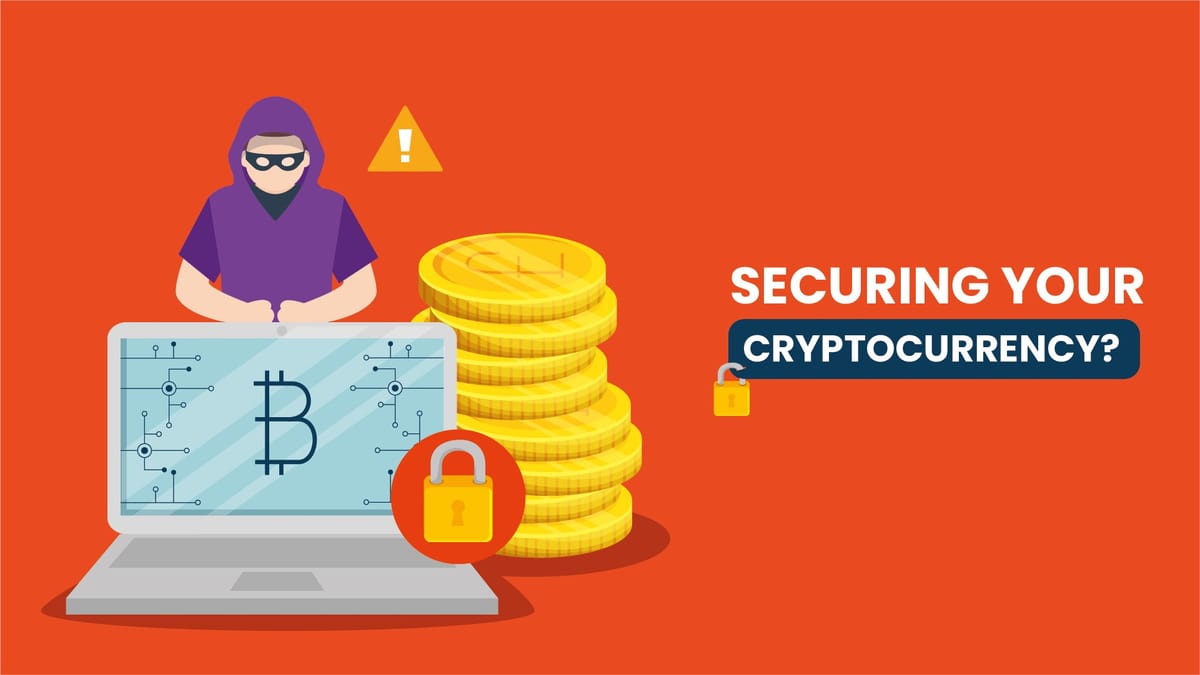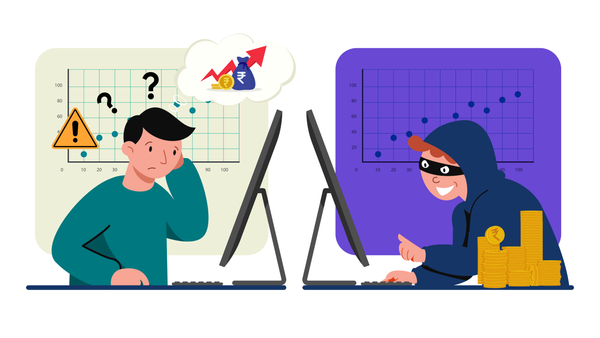How to Secure Your Cryptocurrency? Part-3
Learn essential steps to secure your cryptocurrency, from minimizing hot wallet use to encrypting keys, backing up wallets, and using secure connections.

This is the 3rd post in the series of How to Secure Your Cryptocurrency.
How to Secure Your Cryptocurrency? Part-1
How to Secure Your Cryptocurrency? Part-2
So how do you observe cryptocurrency security and protect your crypto investments? In this part we are covering steps you can take to protect your crypto assets from loss.
Securing Your Cryptocurrency
Avoid unnecessary hot wallet use
Hot wallets are vulnerable to cyber-attacks. Most centralized crypto exchanges have robust security measures, but they hold millions of user funds in their wallets. To this end, hackers will always try their luck and since their centralized storage is a single-point failure, at one time or the other, one tech-savvy will exploit them.
Avoid online private key storage. Only use hot wallets when trading, and when transacting minute amounts of cryptocurrencies. Keep the bulk of your crypto assets’ holdings in secure cold storage.
You would not keep a thousand dollars in your everyday wallet. Take the same caution when storing digital currencies in an online wallet.
Backup your wallet
Stefan Thomas took all the measures above and used cold storage for his crypto investments. That said, Thomas did not back up his 7,002 Bitcoin IronKey wallet password, and now his brain fog stands between him and his crypto treasure.
You should back up your wallet to protect your investment loss. Many cryptocurrency holders have lost their assets to human error and hardware failure. A wallet backup can help you recover your encrypted wallet’s seed phrase or private key should it be stolen or lost.
How do you backup a wallet?
Create a seed phrase. A Seed phrase is a list of encrypted words that can encrypt and decrypt your private keys. To this end, a seed phrase will act as a second password, helping you regain wallet access should something go wrong.
Most online wallets have automatic seed phrase generators. They will generate a set of words that hide or encrypt your private key. Your seed phrase can give you access to your wallet or private key. That said, you will still have the task of storing your seed phrase safely.
You can enhance seed phrase storage safety by saving in secure cloud storage or using encryption software. Alternatively, write it down and store it safely away from thieves or damage. As an illustration, a safe deposit box is an excellent storage space for a seed phrase.
You can also backup your wallet by encrypting it and exporting your private keys to different secure storage spaces. This action prevents single point of failure risks.
Make regular crypto wallet backups
Over time, you will gain new digital currency addresses. You should therefore make regular backups to update your backup until crypto wallets achieve single backup application technology.
Encrypt your wallet
Adding layers of security to your wallet will keep it more secure from hackers. To this end, encrypt your wallet. Encryption ensures that any person in possession of your storage devices cannot easily transfer your private keys.
Use a strong wallet password as well. Make sure that it is at least 16 characters long. Long passwords are difficult to remember, so you have to memorize them. Should you forget your bitcoin wallet password, you could permanently lose your assets, since the encryption is difficult to break.
Use cold wallets as savings accounts
Offline wallets that disconnect from the internet are secure long-term crypto storage devices. Hardware wallets cannot store any other application and are very secure against hacking exploits. The best of them have novel offline transaction signing that keeps the private key disconnected from a network during transaction processes.
Update your software
Blockchains have regular software updates. To this end, use the latest software to ensure that you have top-of-the-range security fixes and protocol stability. Updates will enhance wallet safety. Keep your electronic device software updated as well to ensure that your wallet only functions in a safe environment.
Use multi-signature features for crypto-asset storage access
Multi-signature wallet features prevent theft of funds by enforcing multiple independent wallet access approval. This feature is very beneficial to organizations that have a crypto treasury. A multisign web wallet can help you have control of your private key should a hacker compromise a hit wallet.
Avoid generational wealth loss
Write a testament that provides your family or peers with your seed phrase in the event of your demise.
Use secure internet connections
Always remember that cryptocurrency transactions are pseudonymous. Blockchain systems are transparent and could easily advertise how much wealth a particular public address or key holds. To this end, wallet transactions can flash your crypto holdings to malicious hackers that thrive on the dark web. You can protect your identity by
- Using Hypertext Transfer Protocol Secure (HTTPS) for secure browsing. HTTPS encrypts your digital communications between your browser and other sites.
- Encrypt your internet connection using tools such as Virtual Private Networks or VPNs. A VPN will hide your IP address and enhance privacy. VPNs will secure your online activities using end-to-end encryption, keeping your online activity free from surveillance.
- Alternatively, use anonymity-enhancing browsers such as the Tor network. The Tor or “The Onion Router” browser is an open-source platform that works like any normal web browser. That said, unlike your ordinary browser, it directs all traffic to your computer through a server network, encrypting communication and veiling your identity.
Conclusion
Back to our Colonial Pipeline incident, how did the Fed track down and recover the BTC paid as ransom? As you have discovered, digital currency transactions are not anonymous. Law enforcement officers possibly tracked the cybercriminals’ actions by exploring their public key activities on the Bitcoin blockchain. All that you need to do this is the public blockchain explorer.
They then could track their movements across exchanges as they tried to launder their ill-gotten wealth. As per news media, the FBI tracked the 63.7 BTC to one public address that received its stash on May 27. What may remain a mystery is the FBI’s access to that public address’s private keys. Did their investigation uncover that hacker’s identity? Did they hack the public address’s crypto wallet?
It is an intriguing cryptoverse story. The bottom line is, not your keys, not your digital currencies. Keep your crypto investment safe by observing robust wallet and identity protection measures when online.





